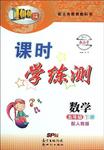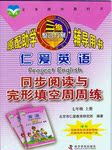题目内容
7.The playto be produced(produce) next month aims mainly to reflect the local culture.分析 即将要在下个月上映的话剧主要是为了反映当地的文化.
解答 to be produced考查非谓语动词的用法.The play与produce之间存在一种被动的关系,同时根据 next month在下个月,是发生在将来的动作,aims是句子的谓语,所以应用不定式的被动形式,故填to be produced.
点评 高考中非谓语动词考的非常多,此类题目较难.把握好以下的知识:to do 表目的、将来;doing 表主动、伴随;done表被动、完成.同时答题步骤为:1.判断是否为非谓语动词,看是否有连词.2.找逻辑主语.3.判断逻辑主语与非谓语动词的关系.4.看是否非谓语动词动作发生在主句谓语动作之前,如果是之前,就用完成式的形式.

练习册系列答案
 百年学典课时学练测系列答案
百年学典课时学练测系列答案 仁爱英语同步练习册系列答案
仁爱英语同步练习册系列答案
相关题目
17.I was really anxious about you.You ______ home without a word.( )
| A. | mustn't leave | B. | shouldn't have left | ||
| C. | couldn't have left | D. | needn't leave |